Microsoft has ‘ripped off the NHS’, says MP amid call for contracts with British firms

Microsoft has “ripped off the NHS”, it was alleged in parliament on Wednesday, as MPs called on ministers to divert more of the government’s multibillion-pound computing budget away from US technology companies and towards British alternatives,The Seattle-based firm’s UK government contracts include a five-year deal with the NHS to provide productivity tools reportedly worth over £700m, while the wider government spent £1,9bn on Microsoft software licences in the 2024-25 financial year alone,The allegation against Microsoft was made by Samantha Niblett, a Labour member of the House of Commons select committee on science, innovation and technology, who said during questioning of Ian Murray, the minister for digital government and data: “I know for a fact how Microsoft have ripped off the NHS,”Niblett, who worked in the data and technology sector before being elected to parliament in 2024, did not provide further evidence, but when the committee chair, Chi Onwurah, voiced surprise at the claim, she said: “Well, it has.
”After describing the government’s multibillion-pound deals with Microsoft, Niblett said it “speaks to the … power of Microsoft to lock in public sector … customers and then sort of entice them with cheap deals, and then you’re locked into a contract and then you’re charged exponential amounts”.The Guardian has approached Microsoft for comment.The claim comes after a series of deals by the government with other US technology companies including memorandums of understanding and partnerships with the maker of ChatGPT, OpenAI, the AI company Anthropic, and Google.MPs on the select committee said the UK needed to develop greater “sovereign” technology capacity, award more contracts to smaller, local providers, and be less reliant on deals that resulted in government departments becoming locked into services with US firms.Explaining more about her understanding of Microsoft’s deals with the government, Niblett said: “I have heard that Defra [the Department of Food and Rural Affairs] recently signed a contract renewal for Windows 10, which is now out of date.
And that has now resulted in them having to pay more for security checks because they’re using a very, very old version of Windows.“I just wonder how much scrutiny and attention is given to what seems like a good contract in the first instance, getting locked in with a single provider then ends up essentially ripping off the taxpayer.”Murray replied to her that it was a “good question”, but did not address the claim that Microsoft had “ripped off the NHS”.He said that the Department for Science, Innovation and Technology (DSIT) was trying to coordinate digital strategy and buying of digital services across the government.“We know there is real serious fragmentation in the £21bn the public sector spends every year on technology,” added Emily Middleton, the director general for digital centre design at DSIT, who was also giving evidence in the committee’s inquiry into the “digital centre of government”.
Sign up to Headlines UKGet the day’s headlines and highlights emailed direct to you every morningafter newsletter promotion“Central government spends about £1bn a year on cloud [computing],” said Middleton,“That’s done through a whole host of different contracts,We know we’re not getting the value for money that we should be,”Emily Darlington, the Labour MP for Milton Keynes Central, asked Murray why the UK relied on US companies such as Palantir, which has a £330m contract to provide a federated data platform for the NHS, rather than UK companies,“We know that we are the second most cyber-targeted country in the world,” she said.
“Building our UK industry and capability is great for our economy, but also is really important for public confidence and really important for our security.”Murray said the answer was to build greater capabilities here in the UK and to avoid situations where “you’re stuck with Microsoft all the way through”.“There’s more to be done in terms of procurement,” he said.“There’s more to be done in terms of making sure the smaller companies are not locked out of the process.”The best public interest journalism relies on first-hand accounts from people in the know.
If you have something to share on this subject, you can contact us confidentially using the following methods.Secure Messaging in the Guardian appThe Guardian app has a tool to send tips about stories.Messages are end to end encrypted and concealed within the routine activity that every Guardian mobile app performs.This prevents an observer from knowing that you are communicating with us at all, let alone what is being said.If you don't already have the Guardian app, download it (iOS/Android) and go to the menu.
Select ‘Secure Messaging’,SecureDrop, instant messengers, email, telephone and postIf you can safely use the Tor network without being observed or monitored, you can send messages and documents to the Guardian via our SecureDrop platform,Finally, our guide at theguardian,com/tips lists several ways to contact us securely, and discusses the pros and cons of each,
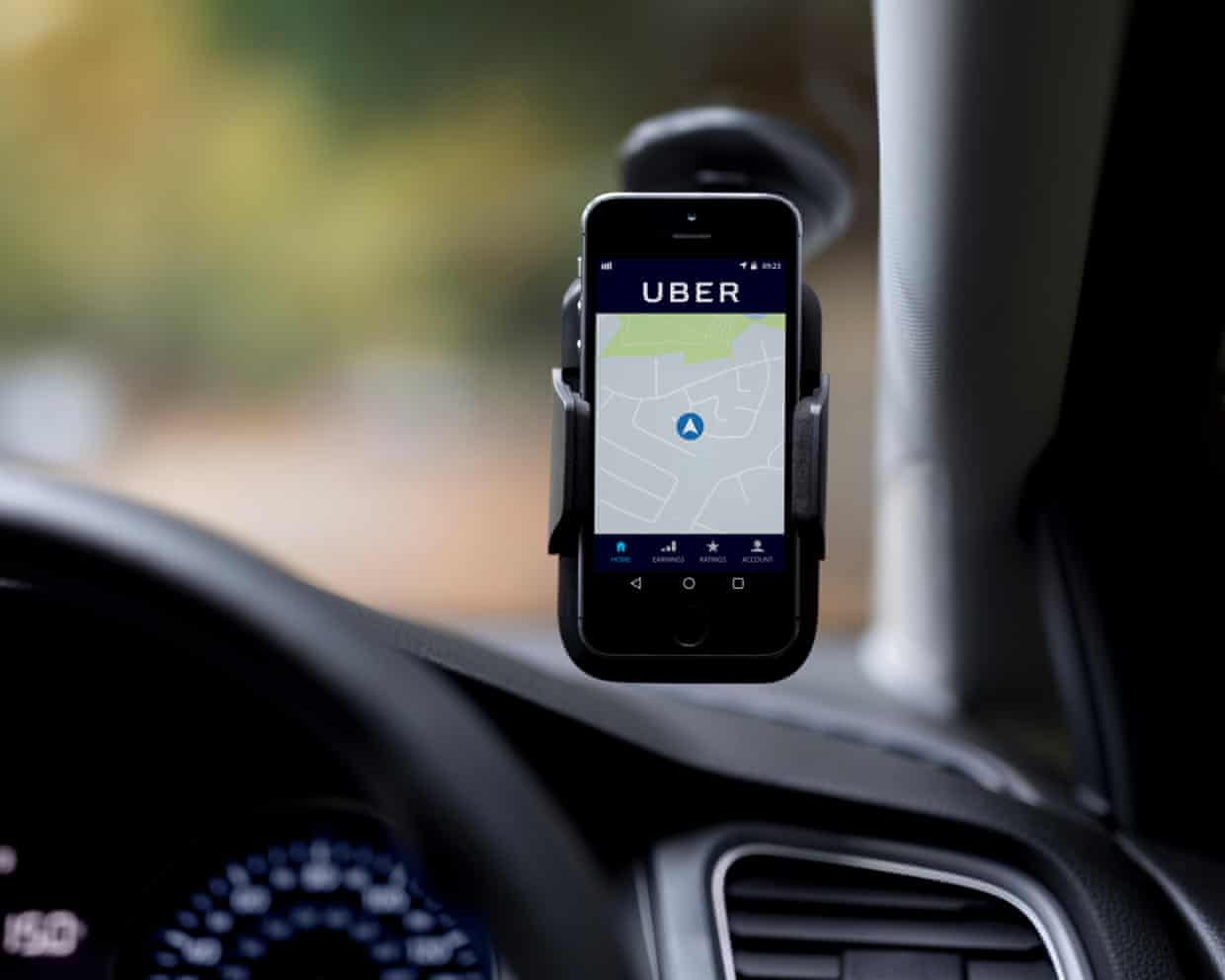
Uber hit with legal demands to halt use of AI-driven pay systems
Uber has been hit with legal demands to stop using its artificial intelligence driven pay systems, which have been blamed for significantly reducing the incomes of the ride hailing app’s drivers.A letter before action – sent to the US company by the non-profit foundation, Worker Info Exchange (WIE), on Wednesday – is understood to allege that the ride hailing app has breached European data protection law by varying driver pay rates through its controversial algorithm.James Farrar, the director of WIE, said: “Uber has leveraged artificial intelligence and machine learning to implement deeply intrusive and exploitative pay-setting systems that have damaged the livelihoods of thousands of drivers.“Through this collective action, we intend to get a fairer deal for drivers and ensure Uber is held financially accountable for the harm caused by this unlawful use of AI.“This case is … about securing transparent, fair and safe working conditions for all platform workers
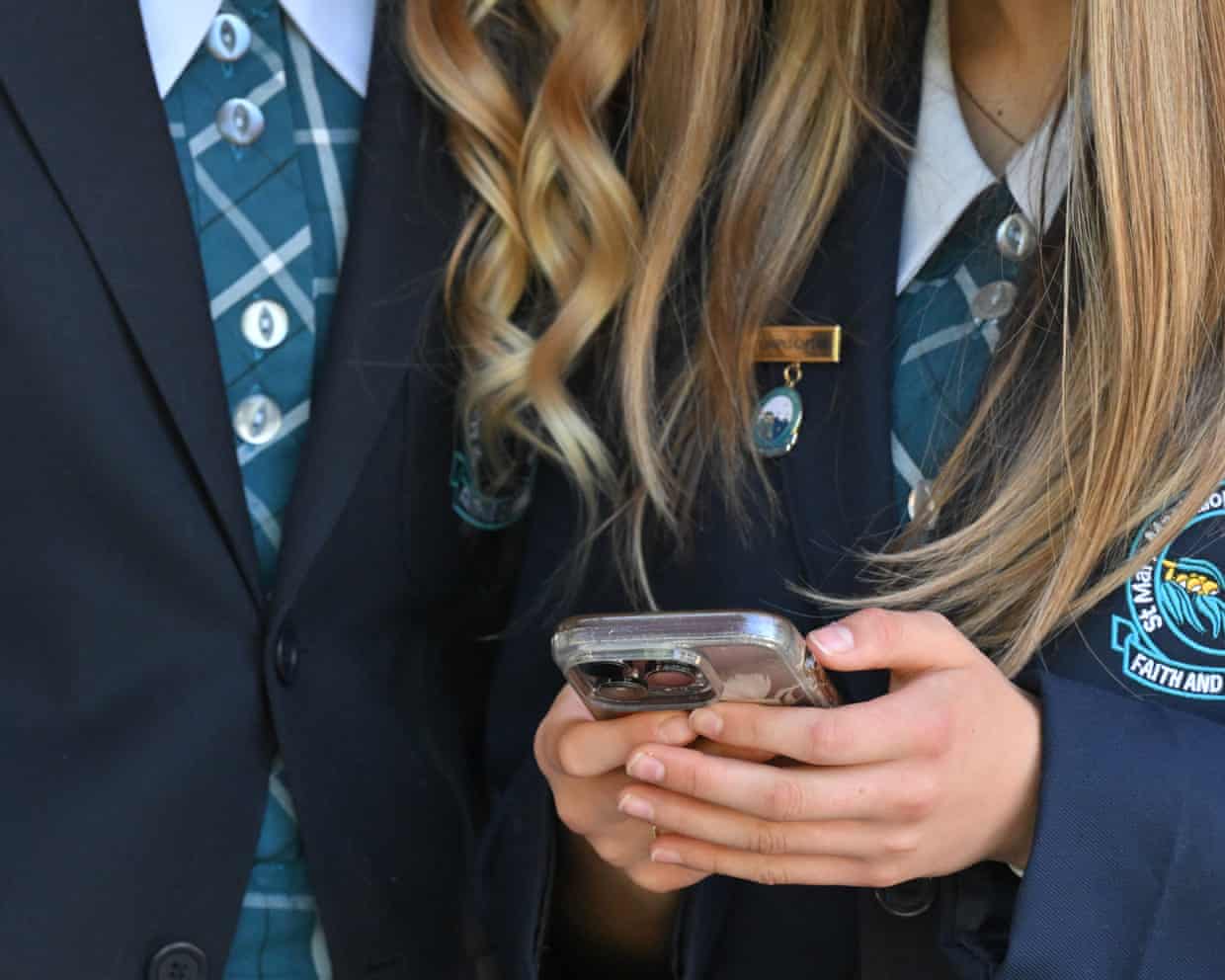
Facebook and Instagram to start kicking Australian teenagers off platforms as social media ban looms
Australian Facebook and Instagram users under 16 will be notified starting Thursday that their accounts will be deactivated by 10 December, as Meta begins to comply with the Albanese government’s social media ban.Users affected by the ban will receive 14 days’ notice of their pending account deactivation through a combination of in-app messages, email and SMS before their access is cut off.The ban will affect users on Facebook and Instagram, as well as Threads, as an Instagram account is required to use that platform. Messenger is excluded from the ban – but Meta has had to develop a way for users to keep access to Messenger without a Facebook account as a result of the ban.Meta will begin stopping access to existing accounts and blocking under-16s from registering new accounts from 4 December, with access removed for all affected accounts by 10 December, the company said
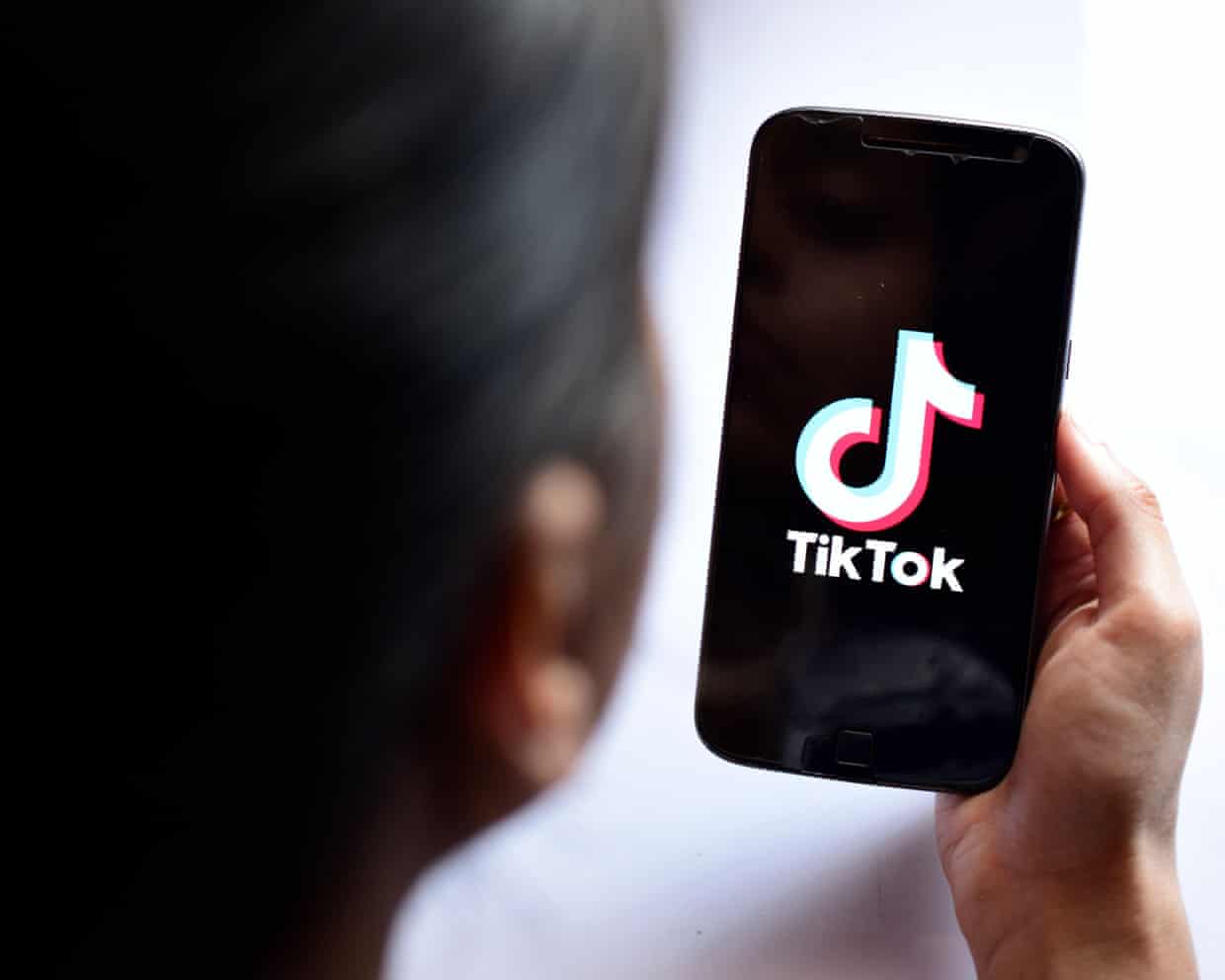
TikTok to give users power to reduce amount of AI content on their feeds
TikTok is giving users the power to reduce the amount of artificial intelligence-made content on their feeds, as it revealed the platform hosts more than 1bn AI videos.The change, which is being tested over the next few weeks before a global rollout, comes as new video-generating tools such as OpenAI’s Sora and Google’s Veo 3 have spurred a surge in AI content online.The Guardian revealed in August that nearly one in 10 of the fastest-growing YouTube channels globally only show AI-generated videos. Many qualify as “AI slop”, the term for low-quality, mass-produced content that is often nonsensical or surreal.Jade Nester, TikTok’s European director of public policy for safety and privacy, said: “We know from our community that many people enjoy content made with AI tools, from digital art to science explainers, and we want to give people the power to see more or less of that, based on their own preferences

Meta wins major US antitrust case and won’t have to break off WhatsApp or Instagram
Meta defeated a major challenge to its business on Tuesday when a US judge ruled that the company does not hold a monopoly in social networking.The case, brought by the US Federal Trade Commission, could have forced the tech giant to spin off Instagram and WhatsApp, with the former FTC chair accusing the company of operating a “buy or bury” scheme against nascent competitors. The tech giant bought WhatsApp for $19bn in 2014. Losing either the image-based social network, which generates an estimated half of Meta’s revenue, or the world’s most popular messaging app could have done existential damage to Meta’s empire.The US district judge James Boasberg issued his ruling on Tuesday after the historic antitrust trial wrapped up in late May
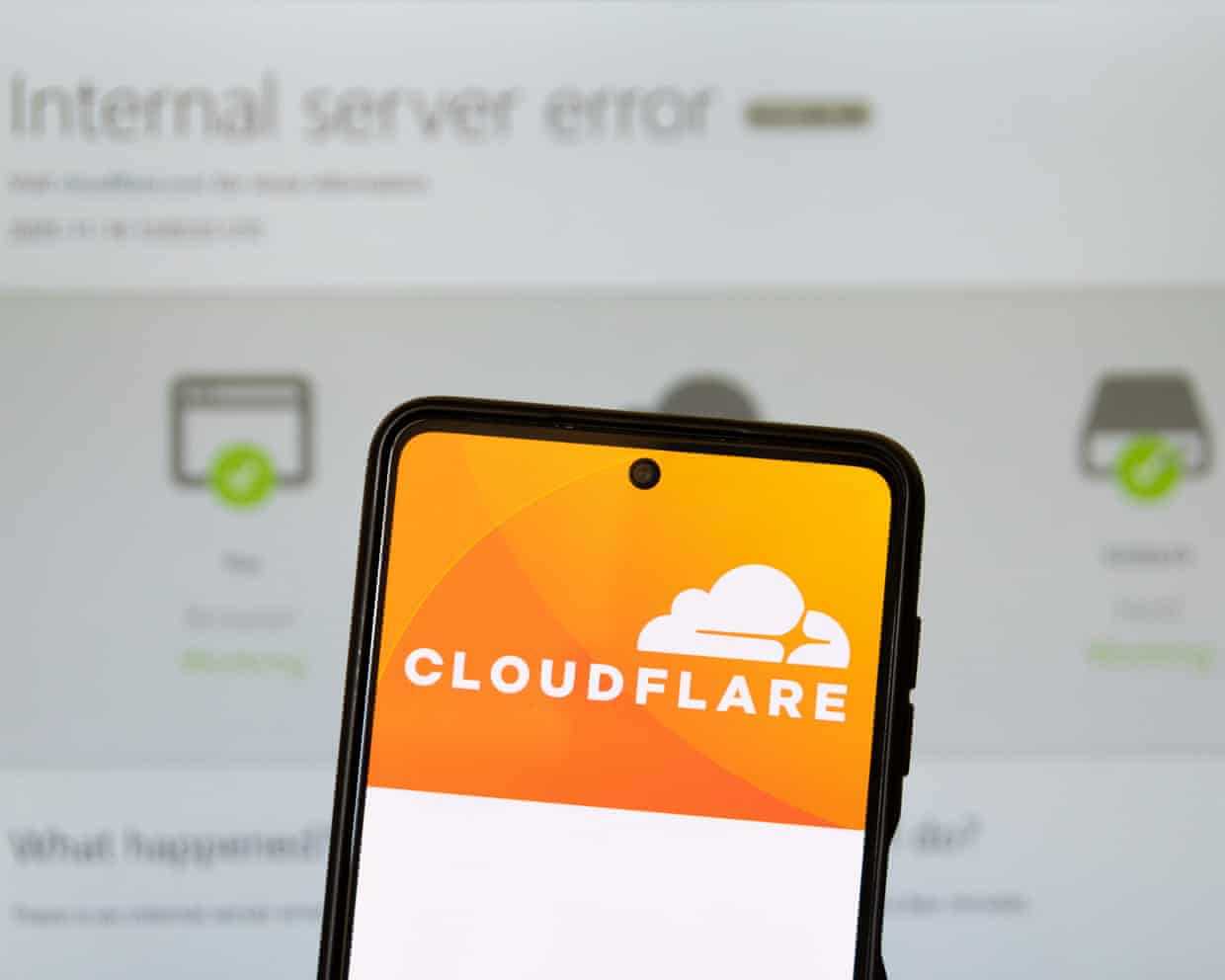
What is Cloudflare – and why did its outage take down so many websites?
The internet infrastructure provider Cloudflare suffered an outage on Tuesday, making many websites inaccessible for about three hours.Cloudflare is a global cloud services and cybersecurity firm. It provides datacentres, website and email security, protection from data loss and defences against cyber threats, among other things. It describes itself as providing an “immune system for the internet”, with technology that sits between its clients and the wider world that blocks billions of cyber threats daily. It also uses its global infrastructure to speed up internet traffic
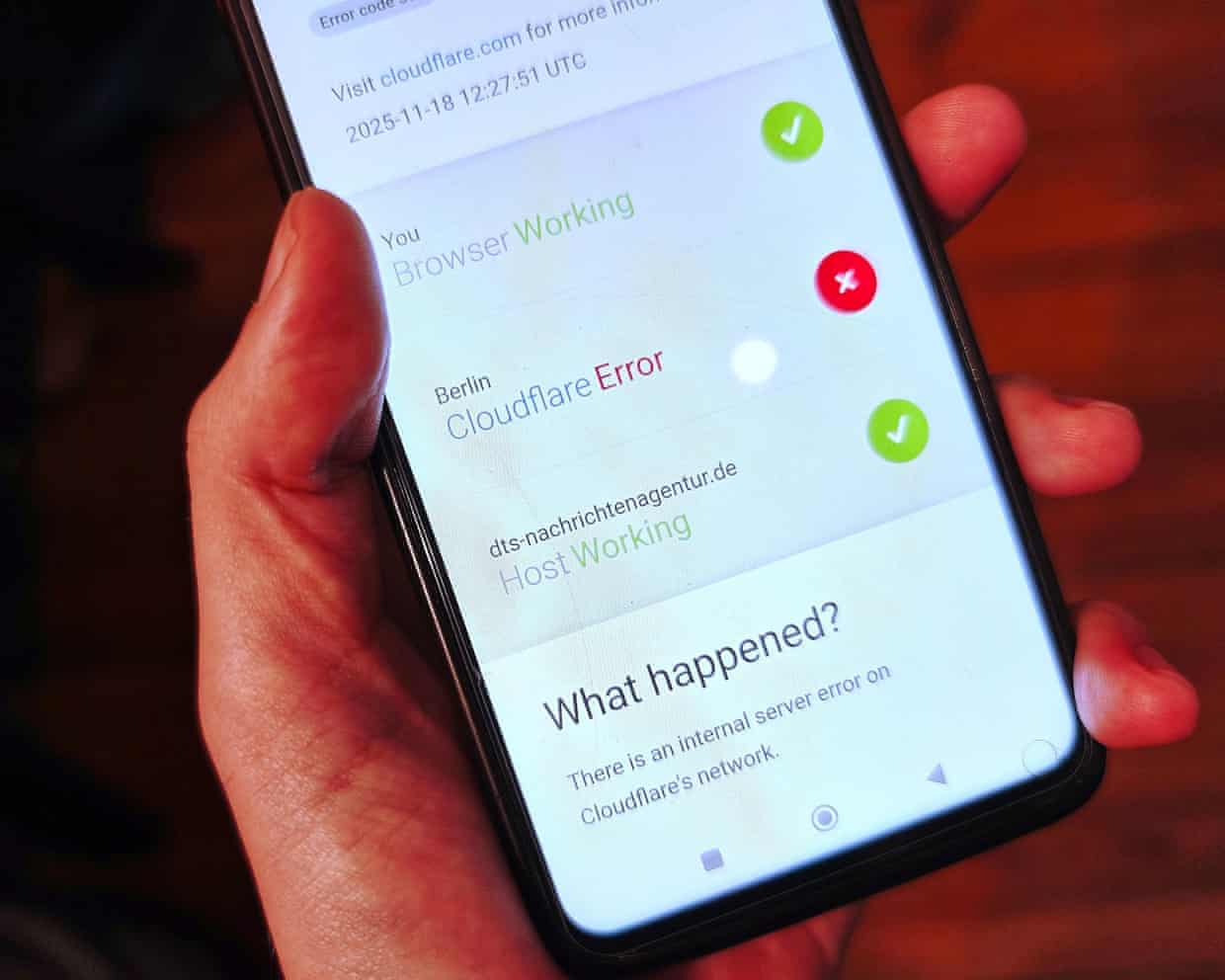
Cloudflare says ‘incident now resolved’ after outage causes error messages across the internet – as it happened
The firm has just issued an update saying it believes the incident over.A fix has been implemented and we believe the incident is now resolved. We are continuing to monitor for errors to ensure all services are back to normal.I’ve just quickly tested several key sites which are loading again.Key sites around the world went down, some for a few hours, after a widely relied-upon Internet infrastructure company suffered an unknown issueThe outages took place in the early hours of US morning and during UK business hoursIt affected users of everything from Spotify, ChatGPT, X, Zoom, Microsoft Teams and Canva to retail websites of Visa, Vodafone and Vinted and UK grocery chains Asda and M&S

Fish, cheese or chicken? Ravinder Bhogal’s recipes for warming winter pies

I’m vegetarian, he’s a carnivore: what can I cook that we’ll both like? | Kitchen aide

José Pizarro’s recipe for braised lamb and kale cazuela with beans

Georgina Hayden’s quick and easy recipe for roast hake with caper anchovy butter | Quick and easy

Sami Tamimi’s recipes for prawn and tomato stew with fregola, and herby quick-pickled vegetable salad

How to make risotto alla milanese – recipe | Felicity Cloake's Masterclass